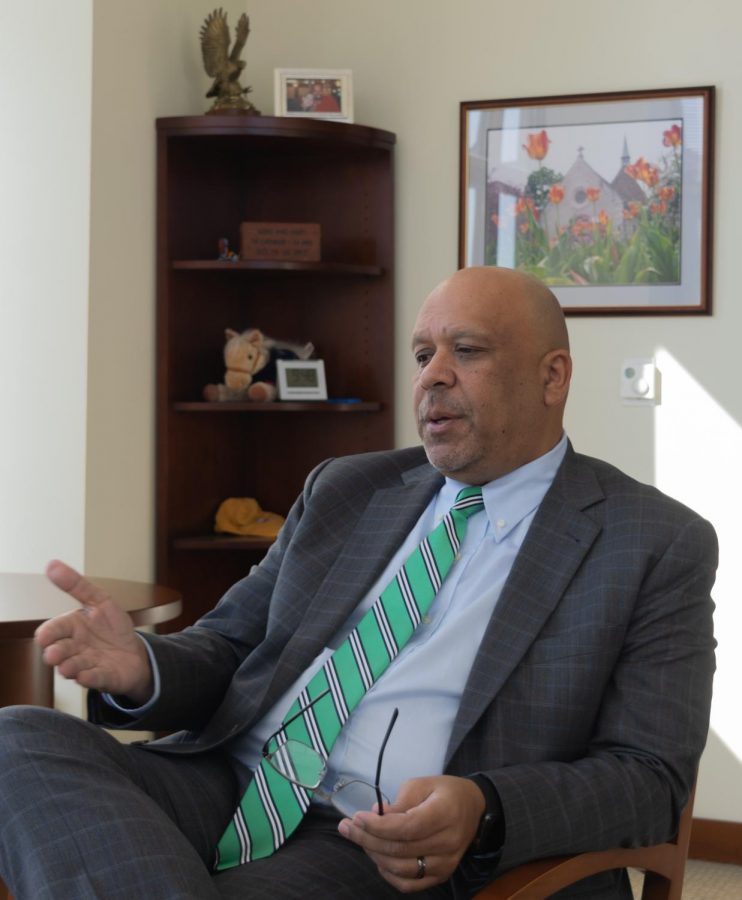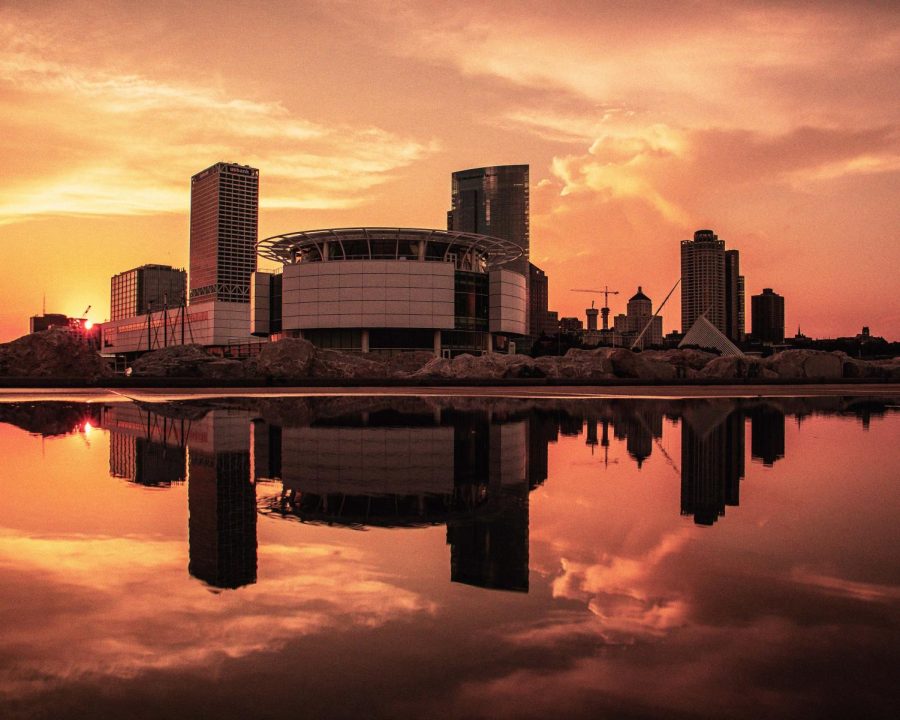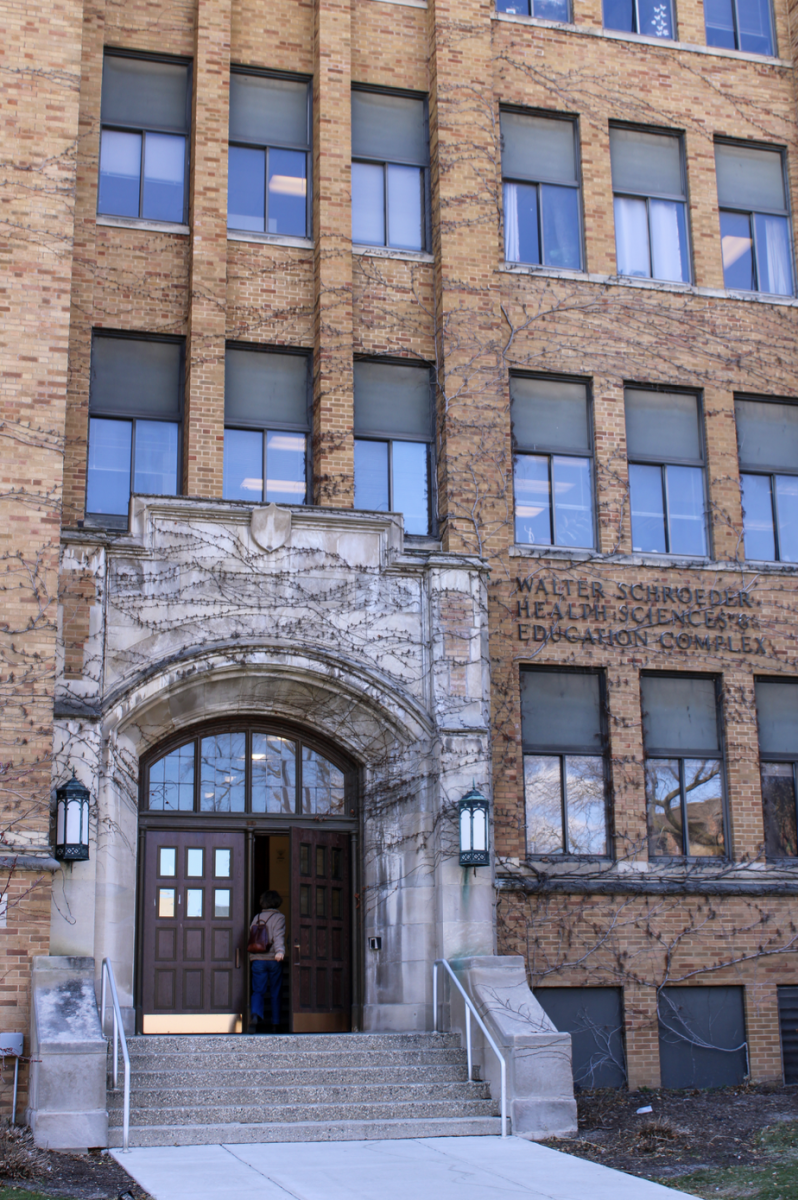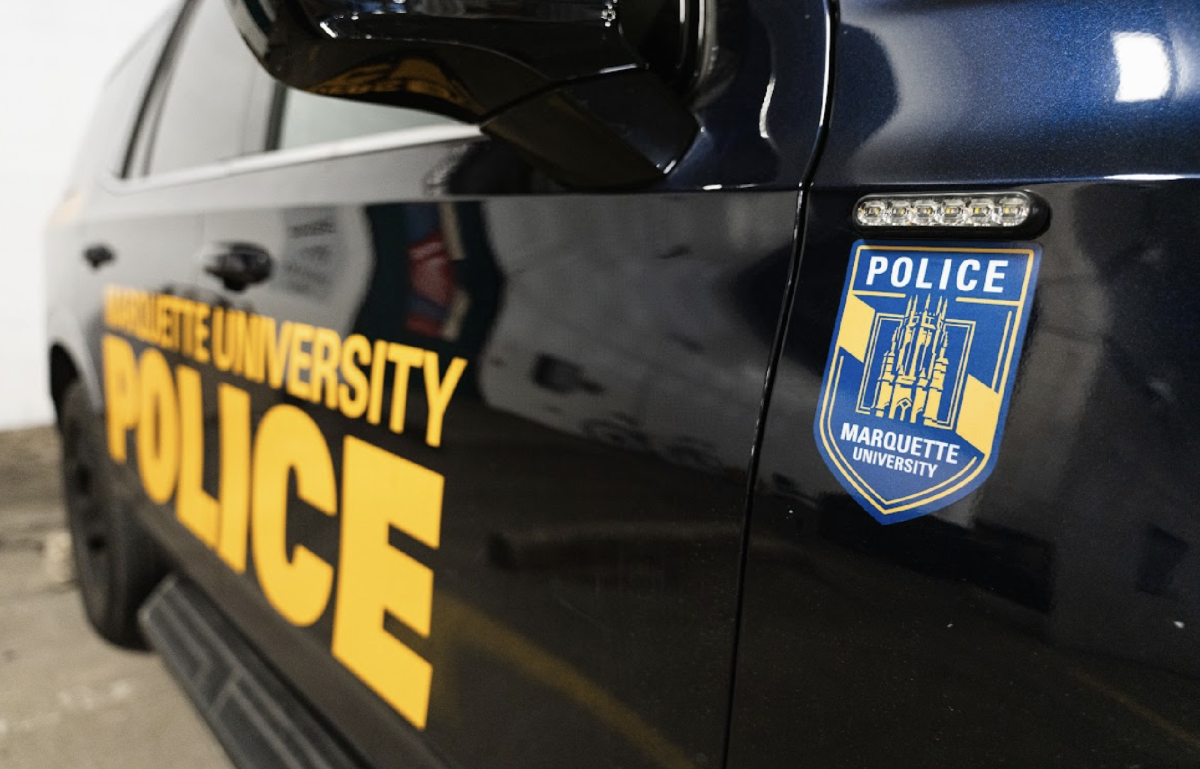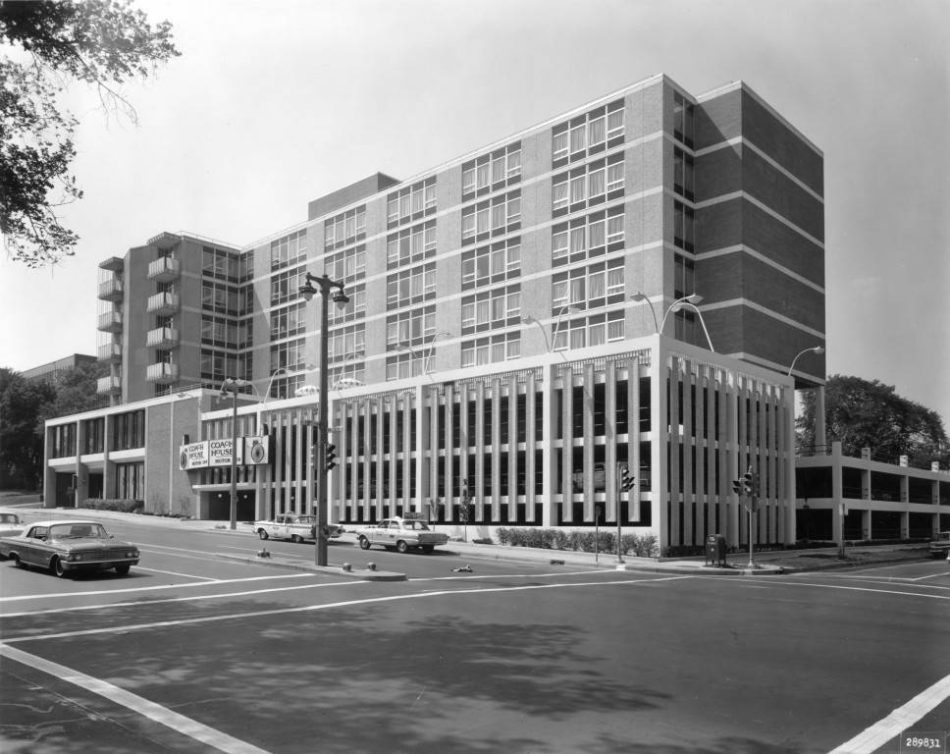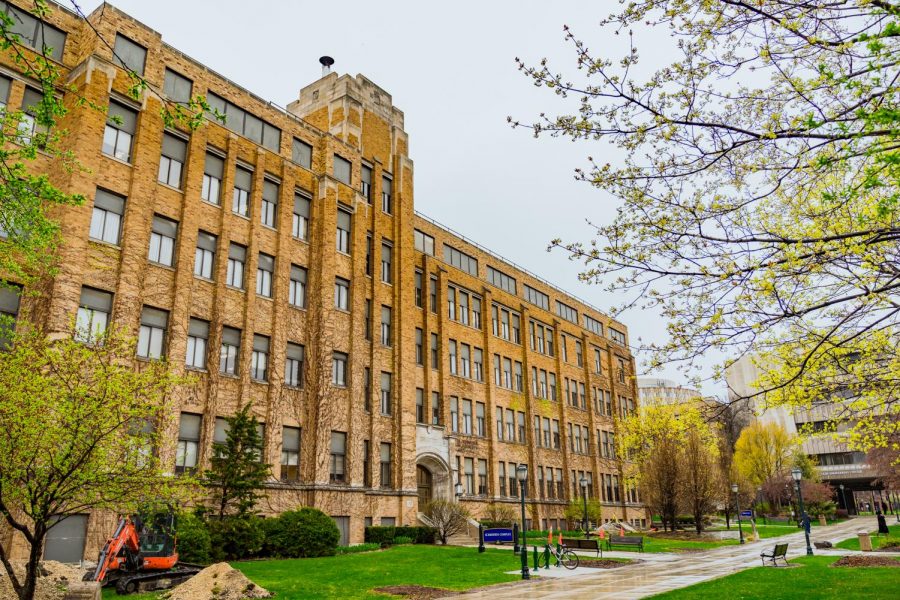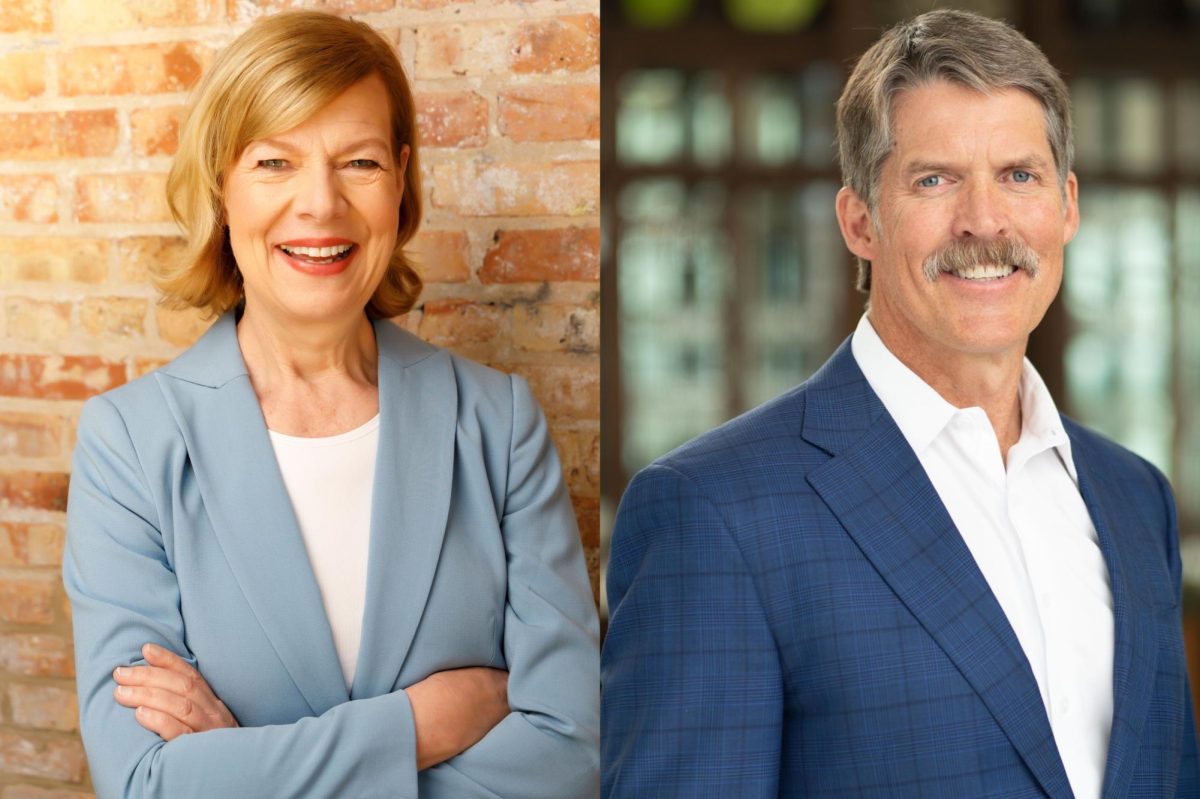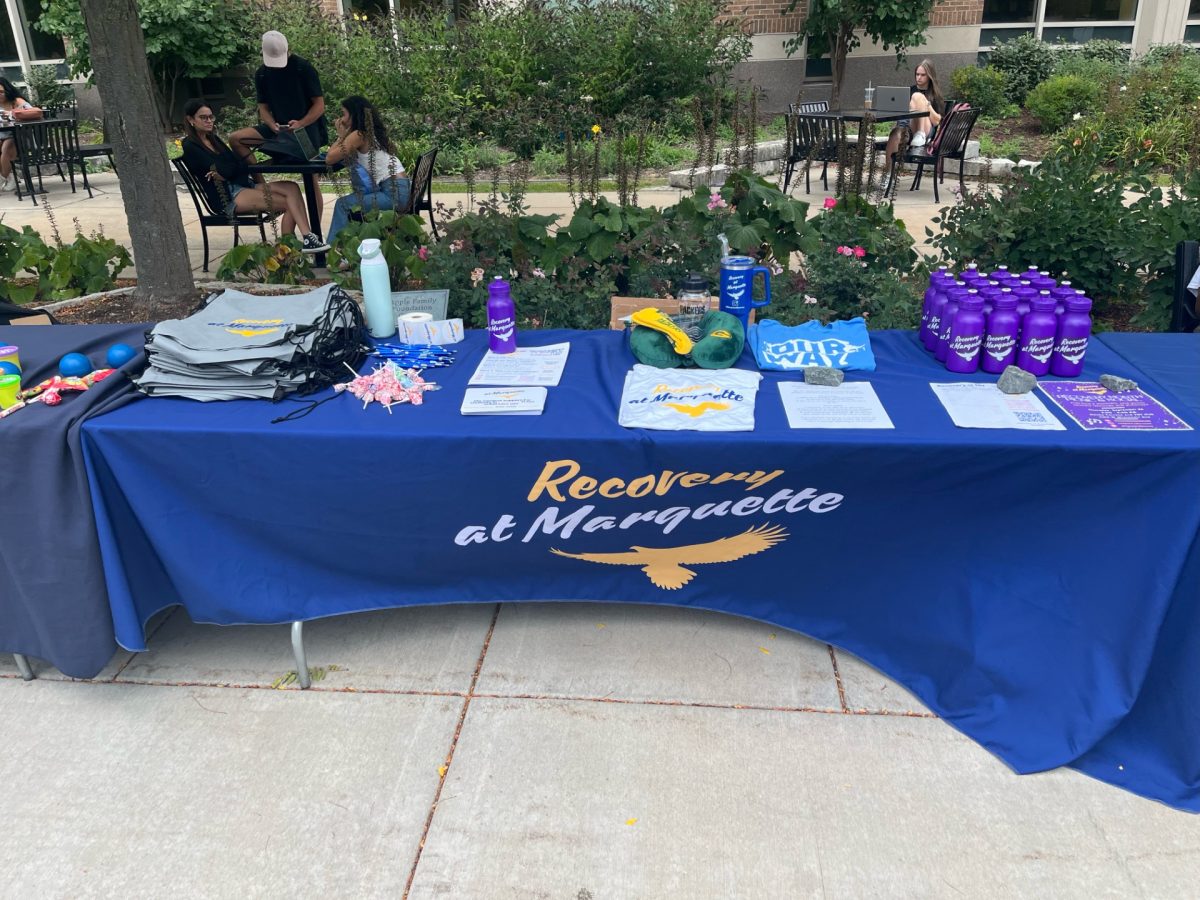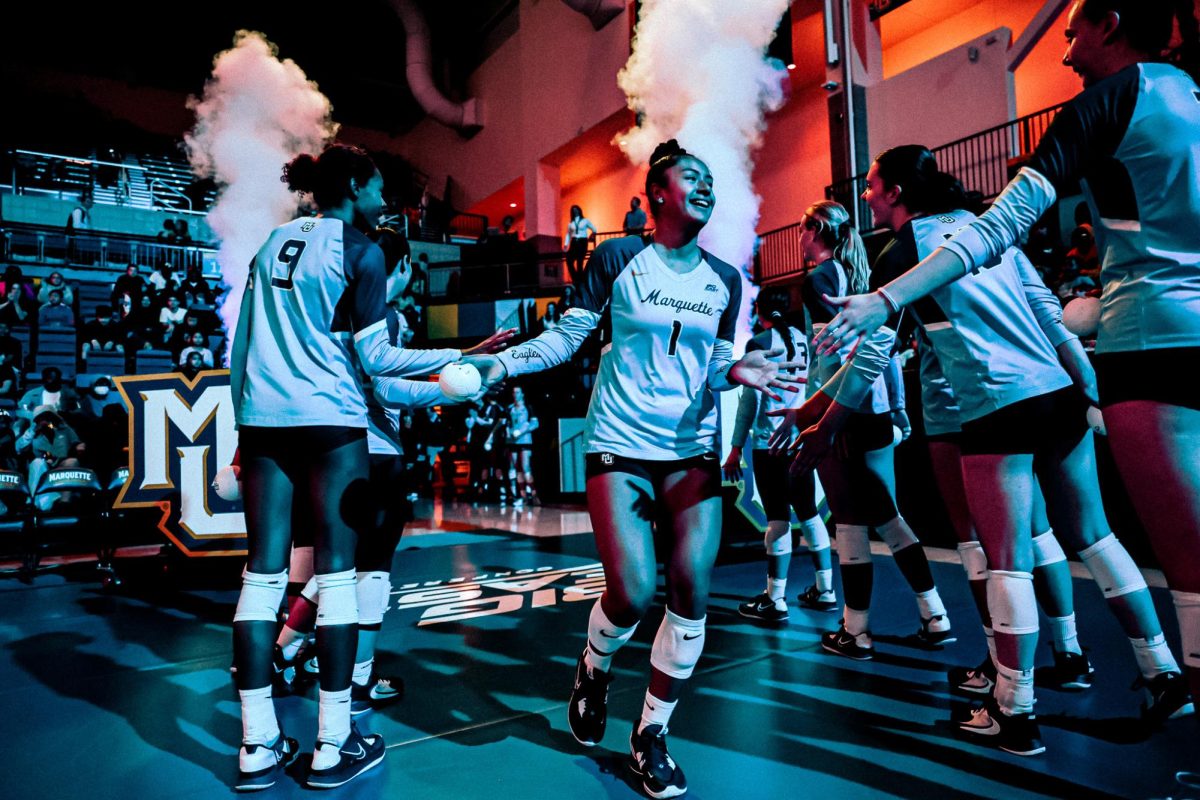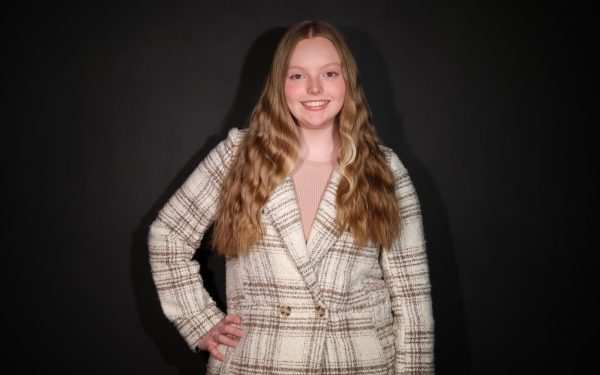The Marquette Wire had the opportunity to sit down with Acting President Kimo Ah Yun for an interview during his first media availability following the passing of President Lovell.
This interview has been edited for clarity.
What has the time after President Lovell’s passing looked like for you regarding presidential duties and how have you seen resilience within the Marquette community?
One of the things we talked about is that Marquette really pulls together during difficult times. That’s probably the biggest thing that I’ve seen. We think as a leadership team, ‘What do we do to be able to stabilize the university? What do we do to take care of our people? What do we do to help people with the grieving process?’ People pulled together to help out one another. They’ve been there to support the Lovell family, more generally.
I’m just very proud and grateful of the university and all it does to be able to support all of our people. The challenge becomes that there are large segments of our university population that are not here. We have some faculty who are away for the summer, and obviously a majority of our students are not here. I think one of the things we have to think about is what we can do to be able to support and serve them as they return back to campus when school begins.
What are some personal goals you have for yourself in the upcoming academic year?
The thing I always look forward to every fall is that our mission statement talks about how we serve God and how we go about serving God. First and foremost is providing a transformational student experience. So, I look forward to the roughly 2,000 new students who will be moving into the residence halls. I look forward to seeing them begin their journey as they figure out the people who they are and who they will become, and how Marquette can be part of that. I look forward to seeing the types of activities that they will do, what they will gravitate towards. I look forward to seeing them being able to develop outside of their families.
I would imagine for most of them this would be the first time they’ve been away from home for an extended period of time. I always look forward to the new students, but also the returning students who’ve got a sense of what Marquette is, what Marquette can do for them and how they will continue on their journey. I have a daughter who is going to be a senior this year in college, and I think about those last experiences the seniors will have as they kind of finish up and get ready to take that next step in their journey as they figure out where they’re called to go and serve. So, I would say it’s always first and foremost about the students in the transformational process.
As a university, we have some really important things that are happening. We think about the Strategic Plan and we’re actively working on it. It’s a way to think about Marquette for the next 150 years. We’re approaching our 150th anniversary for a Catholic Jesuit university with a very specific mission. We understand that there are headwinds that face us in higher education. We look all over about what’s happening. I think this is a great opportunity and I look forward to seeing how the community will respond so that we can solidify the work we do for another 150 years. I think we’ll be stronger. It’s about creating a sense of hope. It’s about creating a sense of aspiration. Hope and aspiration will help to carry us through this time, but more importantly, help us to continue to grow.
You mentioned the Strategic Plan that has been in the works for a few years. How are things progressing with that?
We’ve had a team that’s been working on it. In the near future, the team is scheduled to give an updated report, which they had intended to have by July, and now we’re in July. I just actually talked to the team. I’m expecting that report to come in the next couple of weeks. That report looks at those people saying, ‘Here’s how we’re going to be the operationalized specifics within the Strategic Plan.’ That’s going to help us to be able to get to the next phase, which is the implementation phase. A large part of this is going to require university investments and it’s going to help us to determine where Marquette will put its resources in and invest in the near future.
How has the role of Acting President that you’ve been put in at the moment allowed you to live out Marquette’s motto of “Being the Difference?”
I think it’s about discerning what we want to be able to do in life. What I told President Lovell, one of the things we bonded on when I took the job as dean and then eventually transitioned into the provost role, is that I ended up in the role of being in a university because of the impact that education had on my life. Being a first-generation college student and seeing how my life could be transformed, and then being a professor and being able to be part of helping students to transform their lives is the biggest thing in my life. So, I would say playing a bigger role in thinking about student transformation and thinking about student development has been something that I’ve looked forward to or enjoyed being part of in this last month. I know I’ll continue to look forward to being involved in that in the coming year and beyond.
You mentioned the current higher education complications taking place at universities all across the country, but Marquette has seen some of its highest-ever retention rates and an increase of students living on campus. How do you think Marquette is continuing to be successful in this time period?
Obviously, I first start with our tremendous faculty and staff that we have on campus. One of the things that I hear from people is that when they show up to Marquette’s campus, they feel a difference. They feel as if people are going to be here to support them and guide them. Our difference is who we are as a community and how we care for one another. When you offer an experience that comes from the heart, you offer an experience where you truly care about the student. People feel that when they come to campus, but even more importantly, the students talk about that. When you have a good experience, you talk to your family members, you talk to your friends, and that sort of conversation around that, you can’t buy. The primary thing is that it’s a university that cares about people.
We talk about it in different parts of the university, but we care about relationships and the growth of individuals. When people feel that, they’re going to want to be part of that university. But it doesn’t happen accidentally. I think that’s one part of it. I also think about how as we continue to grow the university, it’s about thinking about strategies about where students are. A majority of our students come from Illinois and Wisconsin and Minnesota, and one of the things we’ve asked our enrollment team is to say, ‘We’re a national university that’s now attracting a greater number of students regionally.’ They were tasked with the job of saying, ‘What are the different markets that we can consider where Marquette has a great strong brand, whose students who understand what we do as a Catholic Jesuit institution, and where would you start?’ They began with the state of Washington, the state of Arizona and the state of Colorado. They said, ‘We believe if we invested more time in those markets, we would see a tremendous increase in the number of students coming from those markets,’ and that’s what we found. I think part of this is really thinking about how we need to change.
We talk about the Jesuits always living with one foot raised. What do we do next? I think it’s being mindful of the kind of things you need to do as a university. I think the second thing that I would talk about, and these are all initiatives that President Lovell started, is the new business building and how that’s attracting students. I think about the new nursing building and how that’s allowed us to increase by 100 nursing students annually. I think about the Lemonis Student Success in the library, which shows our commitment to ensuring when students get here they’re successful. I think about the Wellness and Rec Center and the university pulling in physical, mental and spiritual health and well-being all into one space. We’re able to do things at our university that other universities aren’t doing. When students get here and we tell them and their parents how we will care for them, and we show them the ways that we are doing, it helps to get them to think about Marquette being the right place.
Do you have any progress updates on the new nursing building, the Student Success Center and the Wellness and Rec Center?
I know nursing is still on target to open up in August, and I don’t anticipate any delays there. Last I’ve heard, Lemonis is supposed to also open up in August. The Wellness and Rec Center, there were some delays to be able to get some of the items that they needed. I told them that it’s a priority that’s supposed to be completed in December, so it’s still on pace. I anticipate that any time you’re doing any project, you run into some challenges. I’m remodeling a kitchen right now and it was supposed to be done two months ago, but I’m still not allowed to be in my kitchen. When you start things, things happen. But I anticipate all of those projects to be on schedule, if not very close to it. The first two I’ve heard are on target and ready to go in the fall.
With the increased on-campus number of students in the coming year, O’Donnell is reopening as a residence hall. How has that process been so far this summer and what would you tell students to expect coming into O’Donnell?
Like anything, all of the signs are positive indicators that we’re going to have a strong class. We had just over 2,200 students deposit to come to Marquette. Right now, we’re tracking their enrollment to be able to get them to register for classes. Like anything, there’s a handful that have not registered yet, and hopefully we can get them registered. Our original goal was to get to about 1,950 students, and we anticipate we’re going to be well above that level. For the incoming students, what I would say is that our enrollment team used this model where they build the class one student at a time. They’re looking for the prototypical Marquette student. They’re looking for a student who wants to come and be able to make a difference in the world. So, I would say to the students, expect to be surrounded with many other intelligent individuals who are mission-minded, who want to make a difference in the world, and this is the place that it’s going to be.
Opening up O’Donnell was, say, bringing back a classic. Like anything, it’s interesting because people have different sorts of desires, right? For some people, it’s more important to have air conditioning. For others, it’s to have a dining hall in the building that they’re in, and O’Donnell has some qualities like a greater number of singles that people would be able to get into. One of the things I appreciate is that it’s opened another opportunity for students to decide what’s the best living environment for them based on what they’re hoping they get out of their first year of college and beyond.
In the spring, there were talks of a science biodiscovery building potentially being built. Are there any updates on that at the moment?
Right now, we have a team that’s been working on that. Like anything, we have to have a plan in place. What I’ve always said when biodiscovery comes up is that it’s not about having a new building. It’s about thinking about what that space will do. What will our faculty be able to do that they can’t do in the existing space? How will we teach students differently? How does it open opportunities to think about new degrees and new sorts of connections we can make across campus? Buildings take many years to be able to identify the concept, to begin fundraising for it. I would say we’re still working in the process. Nothing’s imminent right now. But I would say, is that something that’s been a priority for the university for a while? Like anything, we have to ask, ‘what is the plan? How do we build a building without placing that burden on our students? And so how do we do it without having to increase tuition? How do we do it in such a way that we can ensure that it’s not only built, but done in a responsible manner for the university?’
For any of the incoming students, transfer students or graduate students coming into Marquette for the first time, what is one thing you would stress to them that President Lovell lived out in his time here and would want students to live out themselves?
I’m going to talk about two things. The first of them was his deep faith and his conviction and how God played an important part of his life. I think that should be the centerpiece of a Catholic Jesuit institution. That carried with him in everything he did, and I saw it played out in how he cared for other people. The second thing is his optimism. I don’t know another person who was as optimistic as he was. During his battle with cancer, a very difficult time, he always still saw the world in a very optimistic way. ‘Things are going to work out, things are going to get better, things are going to improve.’ So I would ask people, ‘How do you live life with optimism?’ When you think about things positively, we can manifest some of those things to become reality, because we see the world in that positive way.
This story was written by Mia Thurow. She can be reached at mia.thurow@marquette.edu.


